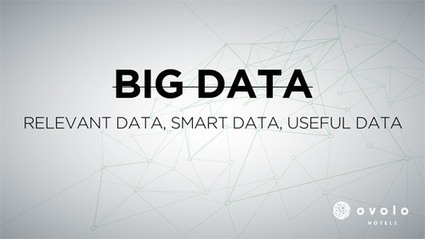Big Data myths or the noise that surrounds this term has created a lot of confusion in the tech world. For this reason, it is essential to highlight the myths surrounding Big Data technology.
Research and publish the best content.
Get Started for FREE
Sign up with Facebook Sign up with X
I don't have a Facebook or a X account
Already have an account: Login
Data analytics as the key to know your customers and offer them what they really want.
Curated by
Luca Naso
 Your new post is loading... Your new post is loading...
 Your new post is loading... Your new post is loading...

Rodrigo Nogueira de Carvalho's curator insight,
March 31, 2014 8:38 AM
Como pequenas e medias empresas podem começar a melhorar suas análises de informação com poucos dados. |
|


















http://mobileworld4all.weebly.com/samsung.html